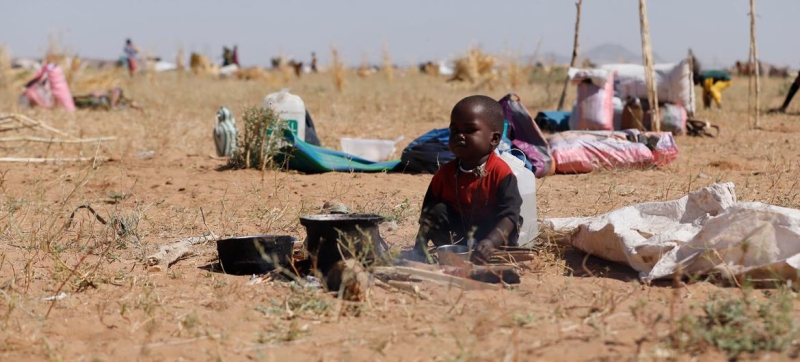
Many families are fleeing El Fasher to Tawila. War in Sudan: Thousands of civilians still unable to leave El Fasher Peace and Security
Thousands of people reportedly remain in El Fasher after armed groups seized the North Darfur capital last month following a lengthy siege. Their loved ones, who had left earlier, lost contact with those who could not leave the city.
Meanwhile, terrifying information arrives from El Fasher. The blockade has resulted in people having to eat peanut shells and animal feed, UN High Commissioner for Human Rights Volker Türk said on Friday. He condemned the massacres of civilians, ethnic executions and other crimes reported to be ongoing in the region.
At a meeting of the Human Rights Council in Geneva, Turk told Member States that traces of blood in El Fasher were visible even from space.
“We warned that the capture of the city by the Rapid Action Force would lead to bloodshed,” he said, calling for immediate international action to stop the violence. The UN’s chief human rights activist said this while speaking at a special meeting of the Council. wars
According to the Office of the United Nations High Commissioner for Refugees (UNHCR), almost 100 thousand people have fled from El Fasher and nearby villages in the last two weeks alone.
“Many of them continue to wander,” said Jacqueline Wilma Parlevliet, head of the UNHCR office in Port Sudan. Families arriving in Tawila, about 50 kilometers from El Fasher, report “unimaginable horrors” before and after fleeing, she said. shelter.
“Parents are looking for missing children, many are in a state of psychological shock due to the conflict and the dangerous path. Unable to pay the ransom, families lose young male relatives – they are arrested or forcibly recruited into armed groups,” explained the UNHCR representative.
Those trying to find safety away from El Fasher are forced to resort to increasingly dangerous routes, avoiding military checkpoints. Some took 15 days to reach refuge with minimal supplies of food and water.
The small town of Ed Debba on the banks of the Nile in northern Sudan is home to at least 37,000 residents of El Fasher, with thousands more reportedly trying to get there. There are also reports that armed groups are forcibly returning many people back to El Fasher, where conditions remain extremely deplorable, UNHCR said, citing local sources. allow to leave the city, either because they do not have the strength or means to escape,” – said Parlevlit.
A crisis of colossal proportions
Sudan is facing the world’s biggest displacement crisis to date, with more than 12 million people forced to flee their homes and seek refuge either within or outside the country.
For many trying to return home in other parts of the East African state, unexploded ordnance poses a huge threat, the UN Security Service said. demining (UNMAS). According to these data, in the states of Southern Kordofan, Western Kordofan and Blue Nile alone, 13 million square kilometers of territory remain contaminated.
“Many other countries also have problems with explosive remnants of war and mines… But Sudan is a special case. Why? Because the war is mainly in urban areas,” said UNMAS Sudan chief Sediq Rashid, speaking from Port Sudan.
He explained that even in the capital Khartoum, people face risks associated with ammunition, anti-tank and anti-personnel mines.
Particularly vulnerable are displaced families who settle in unfamiliar areas “without any knowledge of past conflicts or contamination of the area,” Rashid noted.
Meanwhile, the number of civilian casualties from mines and other unexploded ordnance continues to rise. “We know that reported cases – this is only a small part of the real scale of the damage,” added the UNMAS representative.
